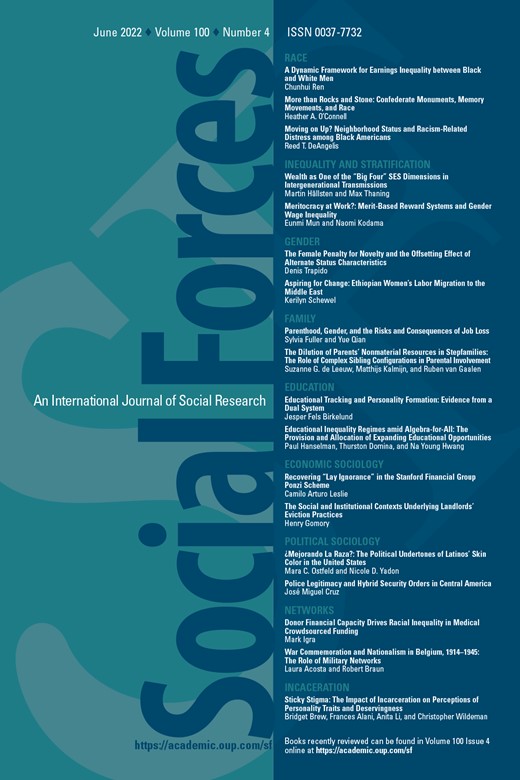-
Views
-
Cite
Cite
José Miguel Cruz, Police Legitimacy and Hybrid Security Orders in Central America, Social Forces, Volume 100, Issue 4, June 2022, Pages 1833–1855, https://doi.org/10.1093/sf/soab087
Close - Share Icon Share
Abstract
This article examines the relationship between hybrid security orders and police legitimacy. Hybrid orders are operationalized through the presence of non-state armed groups who participate in local governance. In some developing countries, police forces are not the only enforcers of laws and local norms. The prominence of non-state armed groups in security tasks at the local level questions police authority. The article uses cross-sectional, national-based survey data from Central America. These countries have been struggling to contain criminal violence while reforming their police forces after years of military control and corruption. The findings indicate that although the police presence in the community helps to build police legitimacy, in some cases, the latter is also associated with the presence of other non-state groups. The article discusses how police forces relate to other non-state groups to retain legitimacy.



